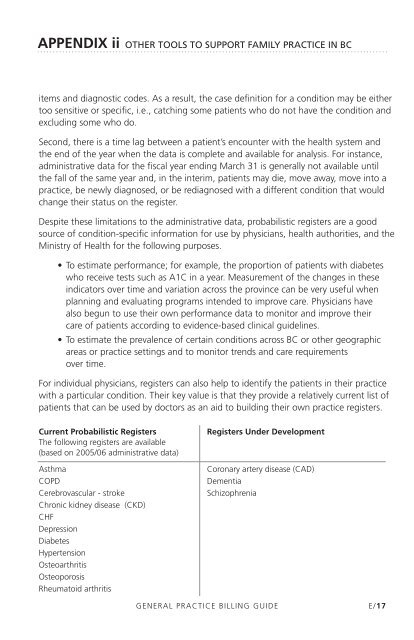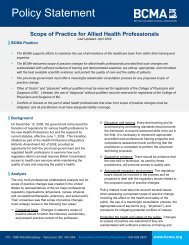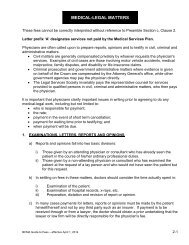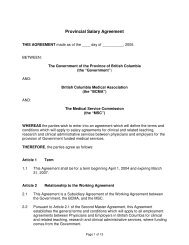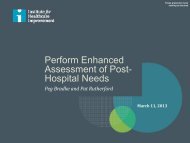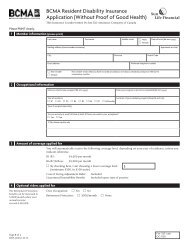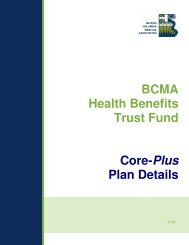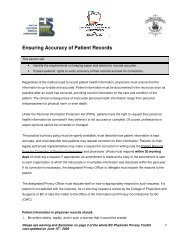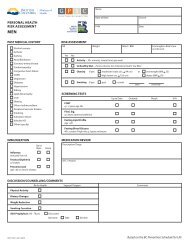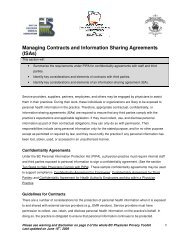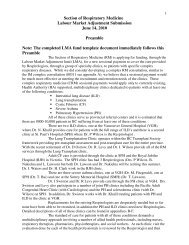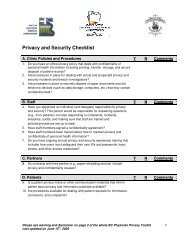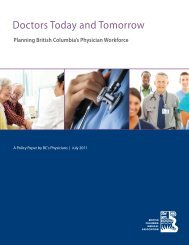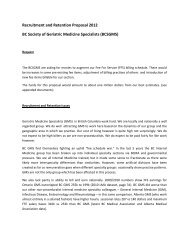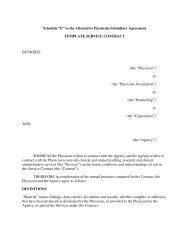General Practice BILLING GUIDE - British Columbia Medical ...
General Practice BILLING GUIDE - British Columbia Medical ...
General Practice BILLING GUIDE - British Columbia Medical ...
You also want an ePaper? Increase the reach of your titles
YUMPU automatically turns print PDFs into web optimized ePapers that Google loves.
APPENDIX ii OTHER TOOLS TO SUPPORT FAMILY PRACTICE IN BC<br />
items and diagnostic codes. As a result, the case definition for a condition may be either<br />
too sensitive or specific, i.e., catching some patients who do not have the condition and<br />
excluding some who do.<br />
Second, there is a time lag between a patient’s encounter with the health system and<br />
the end of the year when the data is complete and available for analysis. For instance,<br />
administrative data for the fiscal year ending March 31 is generally not available until<br />
the fall of the same year and, in the interim, patients may die, move away, move into a<br />
practice, be newly diagnosed, or be rediagnosed with a different condition that would<br />
change their status on the register.<br />
Despite these limitations to the administrative data, probabilistic registers are a good<br />
source of condition-specific information for use by physicians, health authorities, and the<br />
Ministry of Health for the following purposes.<br />
• To estimate performance; for example, the proportion of patients with diabetes<br />
who receive tests such as A1C in a year. Measurement of the changes in these<br />
indicators over time and variation across the province can be very useful when<br />
planning and evaluating programs intended to improve care. Physicians have<br />
also begun to use their own performance data to monitor and improve their<br />
care of patients according to evidence-based clinical guidelines.<br />
• To estimate the prevalence of certain conditions across BC or other geographic<br />
areas or practice settings and to monitor trends and care requirements<br />
over time.<br />
For individual physicians, registers can also help to identify the patients in their practice<br />
with a particular condition. Their key value is that they provide a relatively current list of<br />
patients that can be used by doctors as an aid to building their own practice registers.<br />
Current Probabilistic Registers Registers Under Development<br />
The following registers are available<br />
(based on 2005/06 administrative data)<br />
Asthma Coronary artery disease (CAD)<br />
COPD Dementia<br />
Cerebrovascular - stroke Schizophrenia<br />
Chronic kidney disease (CKD)<br />
CHF<br />
Depression<br />
Diabetes<br />
Hypertension<br />
Osteoarthritis<br />
Osteoporosis<br />
Rheumatoid arthritis<br />
GENERAL PRACTICE <strong>BILLING</strong> <strong>GUIDE</strong><br />
E/17


